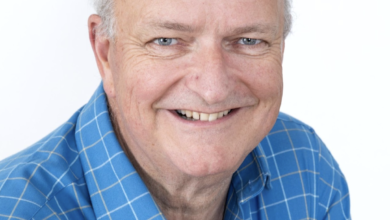The Jab Can’t Fix What Food is Covering Up: Hanna Longstaff on the Hidden Costs of Weight-Loss Injections

With injectable weight-loss drugs gaining traction across the UK, eating behaviour expert Hanna Longstaff is offering a timely reminder: food isn’t always about hunger — and weight isn’t always about willpower.
Across the Atlantic, drugs like Ozempic, Wegovy and Mounjaro are used by over 13% of adults. Now, fuelled by influencers and a growing wellness industry, these GLP-1 medications are rapidly infiltrating the British market too — promoted as sleek, modern solutions to an age-old issue.
But Longstaff, creator of the MFB Method and a long-time advocate for behaviour-led healing, believes the UK is heading down a dangerously superficial path.
“These drugs may suppress appetite, but they don’t address the real reasons why people overeat,” she said. “Many believe their weight is the problem – when in reality, it’s a symptom of a deeper unmet emotional need, they are trying to fill with food. Until the root cause is addressed, no jab, medication or crash-diet will offer a lasting solution. It’s time to talk about the cravings, coping and confidence-gaps that medication alone cannot fix.”
She warns that such treatments may temporarily halt physical cravings — but fail to touch the emotional habits fuelling disordered eating. And once the injections stop, weight typically returns.
“It’s not sustainable, and it was never meant to be,” she added. “These medications weren’t designed for lifelong use in otherwise healthy people. If we don’t fix the underlying patterns, the weight — and the emotional struggle — will keep coming back.”
Physical side effects, from gastrointestinal issues to chronic fatigue, are also becoming more prevalent — with Longstaff expressing particular concern for women, who risk muscle deterioration and long-term frailty.
“We’re seeing people lose lean muscle, which compromises metabolic health and increases frailty. It’s not just about being lighter — it’s about being well.”
On top of the personal health risks, there’s a looming public health challenge. As these drugs become accessible via online providers and private prescriptions, the NHS may find itself footing the bill for follow-up complications.
“It’s a ticking time bomb,” she said. “The long-term impact — both personal and societal — is being massively underestimated.”
Longstaff believes this appetite for shortcuts stems from a larger cultural issue — a society hooked on convenience, speed, and surface-level solutions.
“We’ve trained our brains to crave fast solutions — whether it’s weight loss, food delivery, or scrolling for dopamine. But true change takes time. We must stop chasing shortcuts and start listening to what our bodies and behaviours are trying to tell us.”
Her answer is a return to behavioural basics. Her MFB Method champions drug-free, personalised support, focusing on emotional insight, body connection and self-trust.
“Weight loss should be the side effect of healing — not the goal,” she said. “Until we start treating the cause rather than the symptom, we will continue to see people caught in this cycle of despair and dependency. There is a better way, but we have to be willing to look deeper.”
Learn more about Longstaff’s approach at www.mindfoodbodycoach.com.






